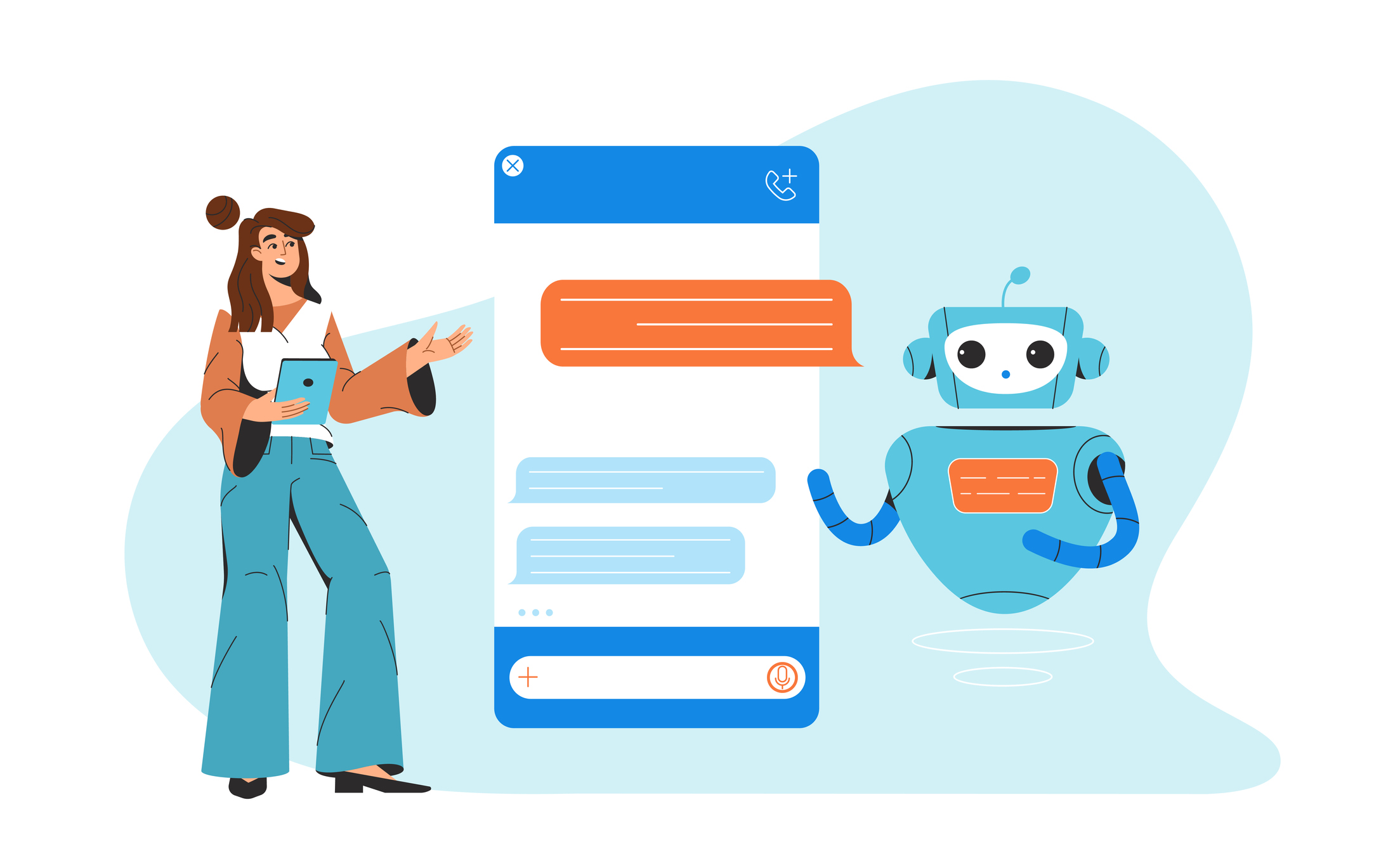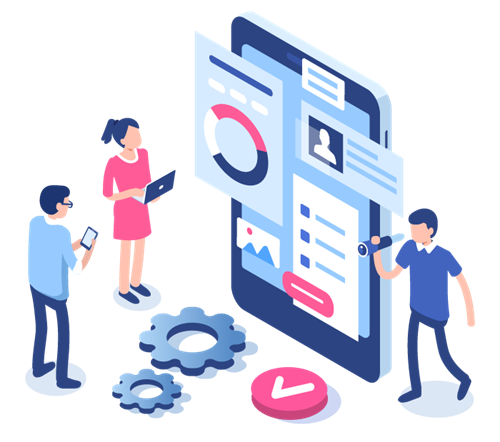Top 5 Advanced Capabilities of Microsoft Teams Integrated Contact Centers
by Nicole Robinson | Published On February 22, 2024

The integration of Microsoft Teams into contact centers marks a significant impact in business communication today.
As we navigate a digital-first landscape, this integration meets a critical need for efficient, versatile communication platforms. 2.88 million Americans were employed at call centers in 2022 which demonstrates the need in modern business operations for such integrations offering a unified solution for customer engagement and internal collaboration. It’s about time for business leaders to grasp the concepts of optimizing operations with Microsoft Teams integrated contact centers.
Advanced Routing and Intelligent Call Distribution
Integrating Microsoft Teams into contact centers revolutionizes business communication. It offers benefits such as advanced call routing and intelligent call distribution. Skills-based routing ensures calls are directed to agents best suited to handle specific inquiries, leading to more efficient resolutions and improved customer satisfaction. Priority-based call allocation allows urgent or high-value customer calls to be prioritized, reducing wait times and enhancing the overall customer experience. This streamlined approach to call management significantly boosts agent productivity and effectiveness, especially in high-volume or complex scenarios. It ensures that even during peak periods or demanding situations, service levels remain consistently high.
AI-Driven Customer Interaction Analysis
In a business scenario, the integration of a Microsoft Teams contact center with AI-driven analytics tools allows companies to deeply analyze customer interactions. AI functionalities like sentiment analysis interpret the emotional tone of customer communications, providing insights into their satisfaction and needs.
For instance, a business can automatically evaluate customer feedback from a support call using sentiment analysis, determining whether the tone is positive, negative, or neutral, and then use this insight to adjust service strategies and address specific customer concerns more effectively.
Interaction trend monitoring identifies patterns in customer inquiries, highlighting areas for improvement or emerging issues. This data-driven approach enables businesses to tailor their services more effectively to individual customer preferences and proactively address issues before they escalate, leading to higher levels of satisfaction and improved customer loyalty.
Seamless Omnichannel Communication
Integration Microsoft Teams contact centers offer the important ability to unify various communication channels, offering a seamless omnichannel experience. This integration is crucial for businesses aiming to provide a consistent and efficient customer experience. Its ability to integrate different communication channels like social media, email, and live chat ensures that customers have a cohesive experience regardless of their chosen communication method. By 2030, it is calculated that the omnichannel retail solutions market will grow to $17.92 billion in revenue. The ease of switching between channels while maintaining conversation continuity exemplifies the platform's versatility and user-centric design.
Enhanced Security and Compliance Standards
In the demanding environment of call centers, where each customer interaction is rife with sensitive data, the integration of Microsoft Teams brings a trusted level of security and compliance standards. This integration is crucial for protecting customer data and ensuring that every communication adheres to rigorous security protocols and industry-specific regulations. Here's an in-depth look at how Microsoft Teams raises the bar for security and compliance in call center operations:
- Encryption and Secure Communication: Microsoft Teams provides robust encryption for voice communications, chat logs, and shared files, utilizing protocols like TLS and SRTP. This encryption extends to data-in-transit during live calls, reducing the risk of eavesdropping and ensuring that customer interactions are confidential from start to finish.
- Data Loss Prevention (DLP): To handle customer data with the highest confidentiality, Microsoft Teams integrates DLP mechanisms tailored for call centers. This feature monitors and restricts data sharing, preventing accidental leaks and keeping sensitive information within the secure boundaries of the call center environment.
- Regulatory Compliance: Microsoft Teams is designed for compliance with various industry regulations, including HIPAA and GDPR. It integrates seamlessly with certified Session Border Controllers (SBCs) and Direct Routing under the Connect model, adhering to strict standards. This compliance is further bolstered by features like Direct Connect and Presence sync, aligning with industry-specific requirements and ensuring efficient and compliant communication flows.
- Enhanced Collaboration Security: Deep integration with contact center solutions ensures secure collaborations. Agents can manage interactions directly within Teams, reducing the need for additional applications and potential security vulnerabilities. Actionable alerts and secure sharing of interactions on Teams channels enhance inter-departmental collaboration while maintaining security.
Empowering Remote and Hybrid Work Environments
The rise in remote and hybrid work environments has been significantly supported by Microsoft Teams contact centers. With Teams’ growing user base, they have proven to be an effective tool for businesses adapting to flexible work models. Its remote access capabilities and cloud-based infrastructure facilitate seamless communication and collaboration, regardless of geographical boundaries.
The prime example of its potential was observed during COVID-19 when most businesses were compelled to manage remote workers. This flexibility benefits businesses by expanding their talent pool, reducing operational costs, and enhancing overall productivity. The ability to work remotely or in a hybrid model also contributes to better work-life balance for employees, leading to increased job satisfaction and retention.
Conclusion
Microsoft Teams integrated contact centers are reshaping business communication, offering advanced capabilities essential for modern enterprises. Companies looking to stay competitive must embrace these advanced features to provide superior customer service and efficient communication.
Learn more about how Microsoft Teams contact center solutions offer optimized operations and start transforming your communication strategy today.
More from our blog
 Agentic AI is transforming contact centers by boosting agent performance, slashing costs, and delivering stellar CX.
Agentic AI is transforming contact centers by boosting agent performance, slashing costs, and delivering stellar CX.
 Spring is upon us, and that means it’s time for some spring cleaning! This is a great way to refresh, reset, and make sure everything is ready and optimized for the season ahead.
Spring is upon us, and that means it’s time for some spring cleaning! This is a great way to refresh, reset, and make sure everything is ready and optimized for the season ahead.
 AI chatbots have become a major part of our daily lives. Learn more about these modern, AI-powered virtual agents.
AI chatbots have become a major part of our daily lives. Learn more about these modern, AI-powered virtual agents.

